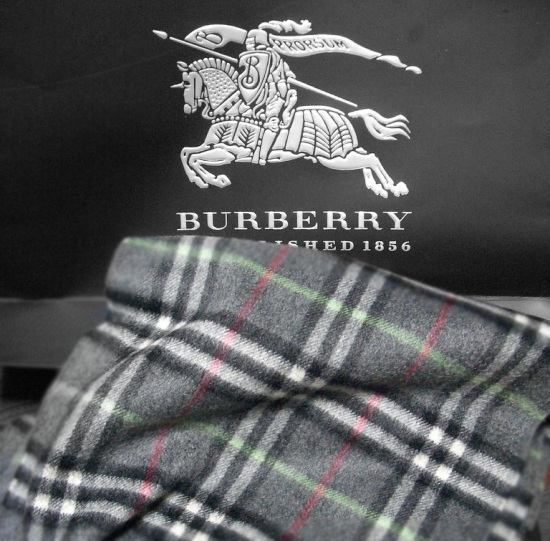Luxury fashion house Burberry has posted a profit alert, knocking almost a fifth off its share price. Investors promptly moved to shift stock after the company admitted sales results would scrape the bottom of current forecasts – causing a drop of £1 billion from the fashion business’ market value.

Of course, the luxury clothing retailer is not the only company to have posted poor sales figures as a result of the current economic situation, but the alert has come as something of a surprise given their recent success. Much of this year has seen Burberry defying gloomy sales trends internationally, largely thanks to its exposure in booming emerging markets such as China and the Middle East.
An industry analyst has claimed the reason for Burberry’s disappointing announcement is largely due to the on-going financial crisis, which has shaken the confidence of even the wealthiest in society. They pointed out that Burberry is “not immune” to the economic slump holding much of the globe, and especially Europe, in a tight grip at the moment.
The luxury goods firm currently has 196 retail commercial properties worldwide, as well as holding 48 outlet stores, 207 concessions and 58 franchise shops. Whilst not giving any details of future store openings in the update, released on September 11th, Burberry announced plans to add a further 12 per cent to 14 per cent of selling space in the remainder of this financial year in a bid to attract custom to its brand.
Chief executive Angela Ahrendts admitted that the sales environment for luxury goods was “becoming more challenging.”
She continued; “Given this background, we are tightly managing discretionary costs and taking appropriate actions to protect short term profitability.”
Burberry had a largely successful first quarter sales in this financial year, with a six per cent sales hike reported in the months leading up to June 30th. This was a continuation from the last financial year’s glowing success, where the fashion firm posted a 24 per cent rise in annual profits to £366 million. Meanwhile, total revenues also grew 24 per cent to £1.9 billion – partly thanks to strong growth in key Asian markets, although the firm’s investment in flagship London and Paris stores also helped to raise the prestige and profitability of the brand.
Unfortunately, second quarter performance in the 2012 – 2013 financial year failed to live up to expectations, with the company posting flat like-for-like sales in the 10 weeks to September 8th. This means that Burberry is unlikely to achieve previous market forecast profits of between £407 million and £455 million, which were predicted earlier this year.
CEO of fashion forecasting company Trendstop.com, Jaana Jatyri, says; “The global economic crisis is dragging on and the longer it drags on the less confident even wealthier individuals become – unfortunately, people lacking in confidence do not shop at Burberry.
“In recent years, Burberry has thrived in the emerging markets where people crave democratic luxury, but even the emerging markets are slowing.”
It seems, then, that the global economic crisis is beginning to take its toll on even the most high branded commercial property chains. Perhaps as things start to improve, the luxury goods market will be able to get back on its feet and start pulling in the profits it is accustomed to – but until then, luxury goods retailers will simply have to tighten their supple leather belts and settle in for the long haul.
Do you think that consumers’ turning from luxury goods retailers is a sign that the global economic crisis is beginning to take its toll on even the wealthiest in society? Or do you believe that Burberry’s poor sales are simply part of the nature of the fashion industry, and that a different fashion house will step in to take its place at the top of the market?
Previous Post
Are Lunch Breaks a Thing of the Past?